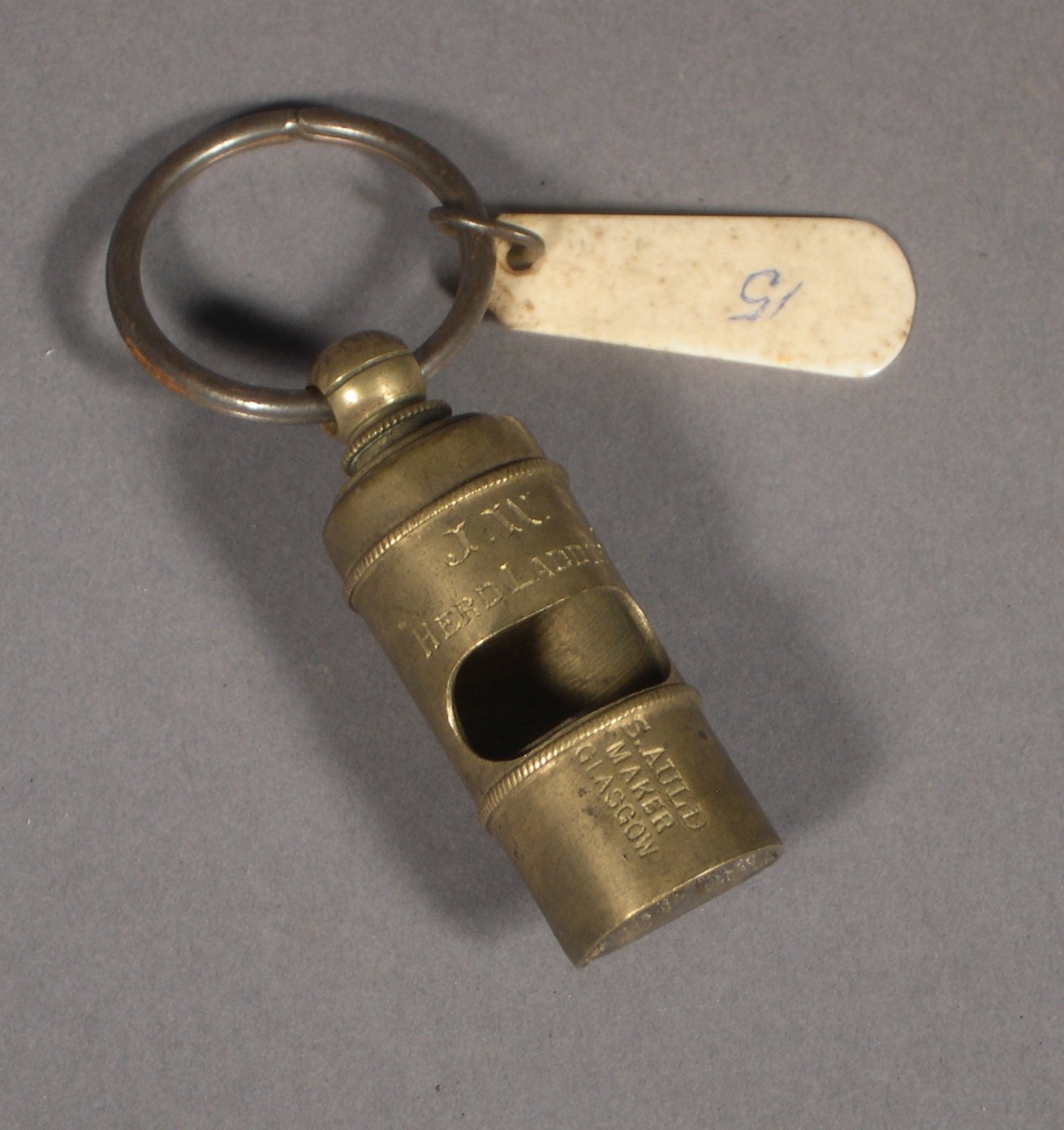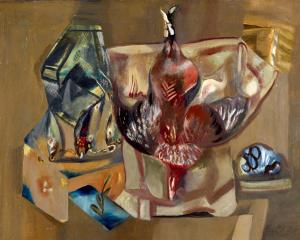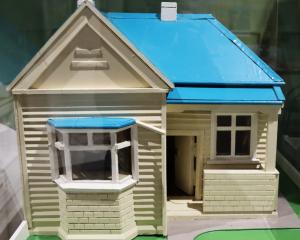

A makers’ mark on the mouthpiece reveals that it was made in the Glasgow works of Samuel Auld & Co., a brass foundry that was established around 1877 after having grown out of an earlier partnership. Such whistles, used by policemen and railway conductors back in Victorian times, were a speciality of Samuel Auld’s business.
On the opposite end of the instrument is another inscription, that reads "J.W. Herd Laddie". The initials J.W. refer to Scotsman James Wyllie (1818-1899) and Herd Laddie was the nickname given to Wyllie early in his career as a champion draughts player.
James Wyllie had begun his working life as an apprentice weaver in Kilmarnock but gave that away to become a pedlar. As he travelled the countryside selling goods, he also demonstrated his skill at the draughtsboard. It was then he was "discovered" by a cattle dealer named Porteous who saw an opportunity. With Wyllie acting as his "herd laddie" and thereafter known by that sobriquet, Porteous drove a herd of cattle to market in Edinburgh and while there had Wyllie take on crack draughts players for money.
According to the donor of the whistle when it was given to the museum, the Herd Laddie was likewise taking on all-comers at a penny-a-game in Glasgow when the local chief of police gave the whistle to him. The chief advised Wyllie that, if he happened to get into any trouble on his way home with his winnings, he should give the whistle a blow and a policeman would come running.
James Wyllie rose to become the greatest draughts player of his generation. His reign as champion spanned several decades and took him all over the United Kingdom, on two tours to America and one to Australasia.
The Australasian tour began in 1887, by which time the Herd Laddie was aged in his late 60s and suffering from deafness. He arrived in Melbourne in April. By July he had played 506 games there, of which he won 479, drew 26 and lost just one. Word was then sent to Dunedin’s David R. Hay asking if draughts enthusiasts were ready to receive him in New Zealand.
Hay was a well-known exponent of both chess and draughts here. He was secretary of the Dunedin Chess and Draughts Club, which he founded in 1875, and was chess and draughts columnist for the Otago Witness newspaper. He was also secretary of a committee that had been established to raise a fund to bring the Herd Laddie to New Zealand.
Apparently, the fund was still a little short of target and the Herd Laddie’s arrival in New Zealand was delayed until September. He continued to amass an impressive tally of wins in Australia while he waited to come to New Zealand. The final count was 1850 games, 1760 won, 88 drawn and two lost.
James Wyllie’s New Zealand tour began with a banquet in Invercargill, where the president of the local club bid him welcome and expressed the hope that New Zealand players could snare more wins against him than the two the Australians had managed. Before long an Invercargill player had notched up the first New Zealand win. By the time the Herd Laddie left Otago in March 1888, New Zealand players had bagged four more. The Herd Laddie returned to Australia in August 1888 with a final tally of 5013 games played in New Zealand, 4797 wins, 209 draws and seven defeats.
His whistle remained behind in New Zealand. Wyllie had given it to Andrew Aitken in appreciation of Aitken’s hospitality when the great champion of the dam brod (draughtsboard) had stayed with him in Gore.
In 1911, more than 20 years after the Herd Laddie had departed New Zealand’s shores, Andrew Aitken donated the whistle to the Otago Early Settlers Association for its museum collection. It was proudly displayed during that year’s annual town vs country draughts tournament, which was held in the association’s Early Settlers Hall.
Peter Read is curator at Toitū Otago Settlers Museum.












![‘‘Neil’s Dandelion Coffee’’. [1910s-1930s?]. EPH-0179-HD-A/167, EPHEMERA COLLECTION, HOCKEN...](https://www.odt.co.nz/sites/default/files/styles/odt_landscape_small_related_stories/public/slideshow/node-3436487/2025/09/neils_dandelion_coffee.jpg?itok=fL42xLQ3)
